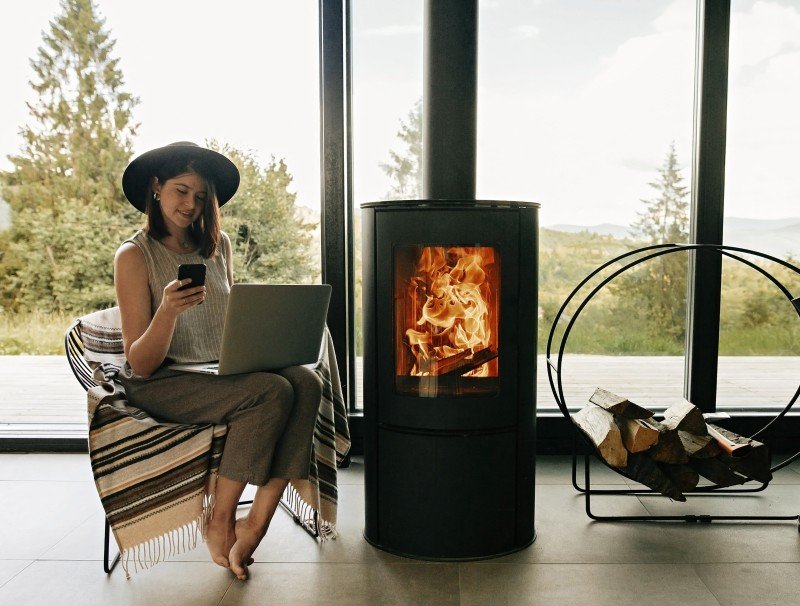The Next Big Trend In The Best Fireplace Industry
The Best Fireplaces for Heat: A Comprehensive Guide
As the cold months technique, having an effective and dependable heat source becomes a leading priority for many house owners. Fireplaces not only boost the atmosphere of a home but also serve as a fantastic source of heat when temperatures drop. With numerous alternatives available on the marketplace, it's vital to understand which kind of fireplace best fits your heating requirements and preferences. This guide will explore the very best fireplaces for heat, their advantages, and how to choose the right one for your home.
Comprehending Different Types of Fireplaces
Before diving into the very best fireplaces for heat, it's important to comprehend the different types available:
Wood-Burning Fireplaces: Traditional and frequently utilized as the focal point of a room, wood-burning fireplaces produce a warm and relaxing environment.
Gas Fireplaces: These offer convenience and constant warmth without the upkeep needed for wood-burning designs.
Electric Fireplaces: Ideal for those searching for an easy-to-install option, electric fireplaces are versatile and can provide heat without venting issues.
Pellet Stoves: These environment-friendly options utilize compressed wood pellets and can provide effective heating.
Bioethanol Fireplaces: A contemporary option that burns bioethanol, creating heat without the need for a flue or chimney.
Advantages and Disadvantages of Each Type of Fireplace
Type of Fireplace
Benefits
Downsides
Wood-Burning
Standard visual, heat output
Needs constant fuel supply, maintenance, ash disposal
Gas
Convenient, simple to utilize
Requires gas line, less ambiance compared to wood
Electric
No venting necessary, easier installation
Minimal heating capability, depends on electricity
Pellet Stoves
Eco-friendly, efficient
Needs electrical energy for operation, manual feeding
Bioethanol
No chimney required, contemporary style
Costly fuel, lower heat output compared to others
Top Choices for Heating Fireplaces
1. Napoleon 1100P Freestanding Wood Stove
- Type: Wood-Burning
- Heating Area: Up to 1,800 sq. ft.
- Efficiency: 78%
- Key Features: Air wash system for cleaner glass, big firebox, and compact style.
2. Empire Comfort Systems Castleton Direct Vent Gas Fireplace
- Type: Gas
- Heating Area: Up to 1,500 sq. ft.
- Efficiency: 80%
- Key Features: Variety of designs, thermostat control, and gorgeous logs.
3. Dimplex Revillusion Electric Fireplace
- Type: Electric
- Heating Area: Up to 1,000 sq. ft.
- Efficiency: 100% heat used.
- Key Features: Realistic flame effect, easy installation, and remote control.
4. Traeger Pellet Grills Pro 575 Wood Pellet Grill
- Type: Pellet Stove
- Heating Area: Variable, based on space heating.
- Effectiveness: 90%
- Key Features: Versatile grill and heating capabilities, Wi-Fi-enabled.
5. Genuine Flame Siena Bio-Ethanol Fireplace
- Type: Bioethanol
- Heating Area: Up to 500 sq. ft.
- Efficiency: 3,000 BTU/hour
- Secret Features: Portable, modern design, and no venting required.
Fireplace Model
Type
Heating Area
Effectiveness
Cost Range
Napoleon 1100P Freestanding Wood Stove
Wood-Burning
As much as 1,800 sq. ft.
78%
₤ 1,500 – ₤ 2,000
Empire Castleton Gas Fireplace
Gas
Approximately 1,500 sq. ft.
80%
₤ 1,200 – ₤ 2,500
Dimplex Revillusion Electric
Electric
As much as 1,000 sq. ft.
100%
₤ 600 – ₤ 1,200
Traeger Pro 575
Pellet Stove
Variable
90%
₤ 500 – ₤ 800
Genuine Flame Siena Bio-Ethanol
Bioethanol
Up to 500 sq. ft.
3,000 BTU
₤ 300 – ₤ 600
Aspects to Consider When Choosing a Fireplace
When selecting a fireplace for heating functions, several factors should be considered:
1. Heating Capacity
Understanding the square video you need to heat is crucial. Measure the location and compare it with the output of the fireplace.
2. Kind of Fuel
Consider the fuel source readily available in your location (wood, gas, electrical power, etc) and your comfort with utilizing that fuel.
3. Efficiency Rating
A higher efficiency score implies better heat retention and energy usage.
4. Setup Requirements
Some fireplaces need comprehensive installation, while others can be used right away. Examine your ability and willingness to accommodate these requirements.
5. Looks
The look and style of the fireplace ought to match your home decoration, while also being practical for your heating needs.
Regularly Asked Questions (FAQ)
1. What kind of fireplace is the most efficient for heating?
Electric fireplaces are 100% efficient as they transform all energy used into heat. However, for larger areas, high-efficiency wood or gas fireplaces can also provide considerable heating while retaining warmth.
2. Can I use a gas fireplace during a power interruption?
Normally, gas fireplaces operate individually of electrical power, indicating they can still function throughout power failures, offered a proper gas supply is available.
3. How typically should I service my fireplace?
For wood-burning fireplaces, an annual examination and cleansing are advised. Gas and electric versions usually need less regular maintenance, but an annual check is still advisable.
4. What is the life expectancy of a fireplace?
The life expectancy differs significantly depending upon the type and use. A wood-burning fireplace might last 20-30 years with proper maintenance, while electric models may last up to 15 years.
5. Is a wood-burning fireplace worth the trouble?
While wood-burning fireplaces require more upkeep and fuel management, many individuals value their atmosphere, heat output, and the experience of a traditional fire.
Choosing the very best fireplace for heat in a home involves cautious factor to consider of type, efficiency, size, and installation requirements. Each type of fireplace has special attributes and benefits that deal with various choices and heating requirements. With Fireplaces And Stove , house owners can make informed choices to take pleasure in a warm and comfortable winter season. Whether selecting a conventional wood-burning stove or a contemporary electric system, the best fireplace can significantly boost both comfort and ambiance in any living area.
